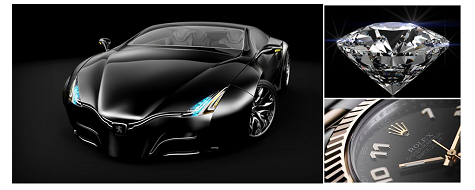As much as we want to believe we are judged solely on our skills, education, experience and abilities – it’s just not always true. And unfortunately, the interview process is all about judgment.
The hiring decision can be the most costly decision a company can make, and the higher the position the higher the risk. When recruiters and mangers are making hiring decisions there is a fair about of scrutiny and judgment involved. They already know your background because of the resume, cover letter and LinkedIn profile but now they want to know even more about you and it’s not always work related.
Here are some things that they look at in order to make the best decision which has nothing to do with your resume or interview answers.
Your Car!
Yes your car can cost you the job. It’s not only the busted jalopy which smokes like a crop duster but the rimmed up shiny, flashy, iced out ride with candy paint. I used to work with a Manager who would look at the parking and pay close attention to the kind of car the candidate drove, how they entered the parking lot and how they left? Even if they were playing loud music? For some positions your car can be too showy and send a message that you don’t need a job and are less deserving than someone with a more “average” car. For other positions, if the car is an embarrassment, they might not want it on their lot. If you think your car is costing you opportunities make adjustments; borrow someone’s car, or park a block away and walk to the interview.
Your clothes and accessories.
I am not going to tell you how to dress up for an interview – hopefully anyone reading this article has the common sense to dress up for an interview by now! What I will tell you is not to overdo it. Recently, I learned from a VP level executive that trying to impress with jewelry, clothes and cologne could back fire especially if you are wearing fakes or knock offs. Let’s be honest, the knock-off name brand business is a billion dollar industry and many people are walking around with fake items on. But most executives are used to the finer things in life, they can see a fake a mile away and if you wear fake stuff and pretend it’s real or if you don’t know it’s fake, it can reflect poorly on you and your decision making skills. So let’s say it’s not a knock off, and it’s real, you just don’t want to be too flashy anyway – so put the Michael Kors purse down and get a generic interview bag.
Your smartphone.
You didn’t turn it off. You paid way too much attention to it during your interview. Remember you are being judged, so your ring tone counts as well. Do not keep it in your hand and glance at it from time to time. Do not place it face up on desk so you can sneak a peak. Don’t even put it on vibrate - turn it off. And most certainly, DO NOT answer it during an interview.
Your vacations.
Shocking right? Companies want to know how diverse, broad and worldly you are. They want to know if you have experienced different cultures and traditions. As you ascend to higher heights in your career, you will find the questions are less process oriented and more centered on you. For instance why would an employer want to know about your last 2 or 3 vacations? Or if you have a valid passport? You see the world of work is much bigger today and when you are talking about CEO, CHRO and CFO level talent, companies want to know if you’ve seen the world, gone on an adventure, learned about a new culture or experienced anything beyond your own backyard. If you have only been to Disneyworld, that’s great – for Walt & Mickey.
You might take issue with everything I’ve outlined here.
“What does my car have to do with it?” “They shouldn’t be judging me on that!” You’re right.
“What’s wrong with my clothes?” or “That expensive bag/watch/shoes were a gift, why are they looking at that?” “I’m just trying to look the part!” Right again!
“Where I go on vacation should have nothing to do with it!” ”I want a job, not vacation.”
Once again, you’re right but the fact remains we want to learn more about one another before deciding to do business together - everything is fair game. You might not think it’s fair but for those with big ambitions, it’s important to know how the game really works, like it or not.

 Follow
Follow